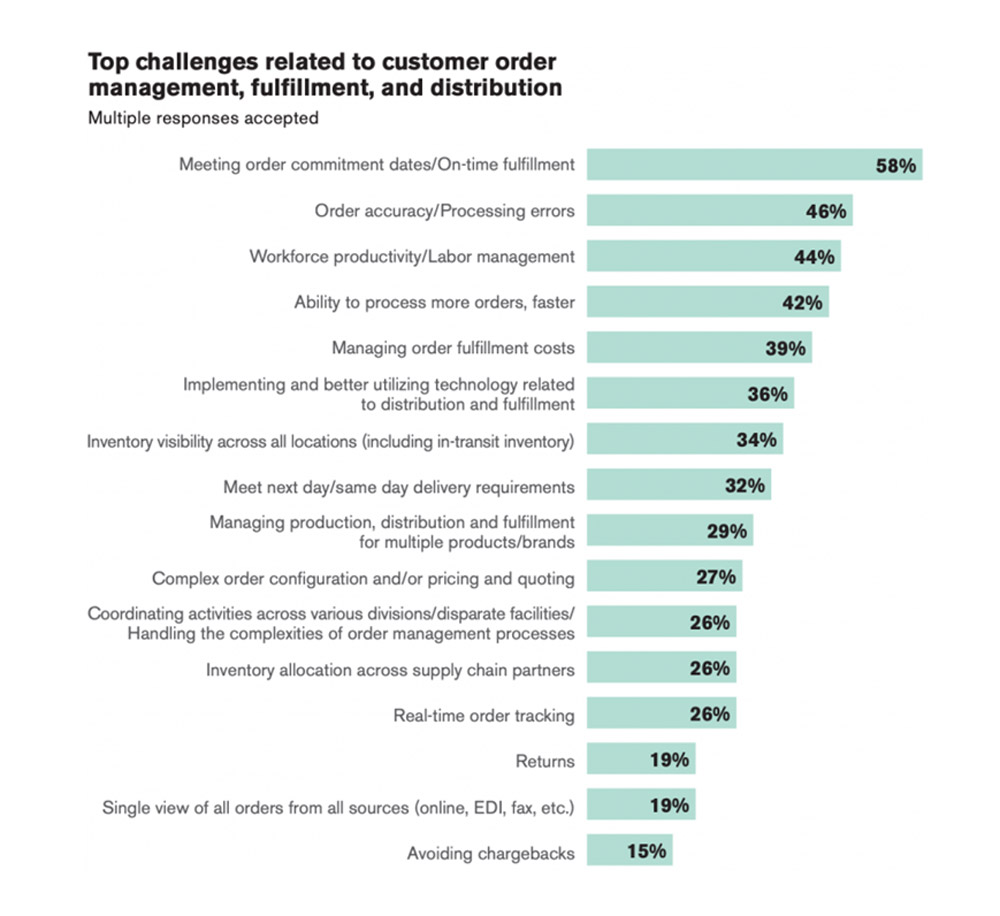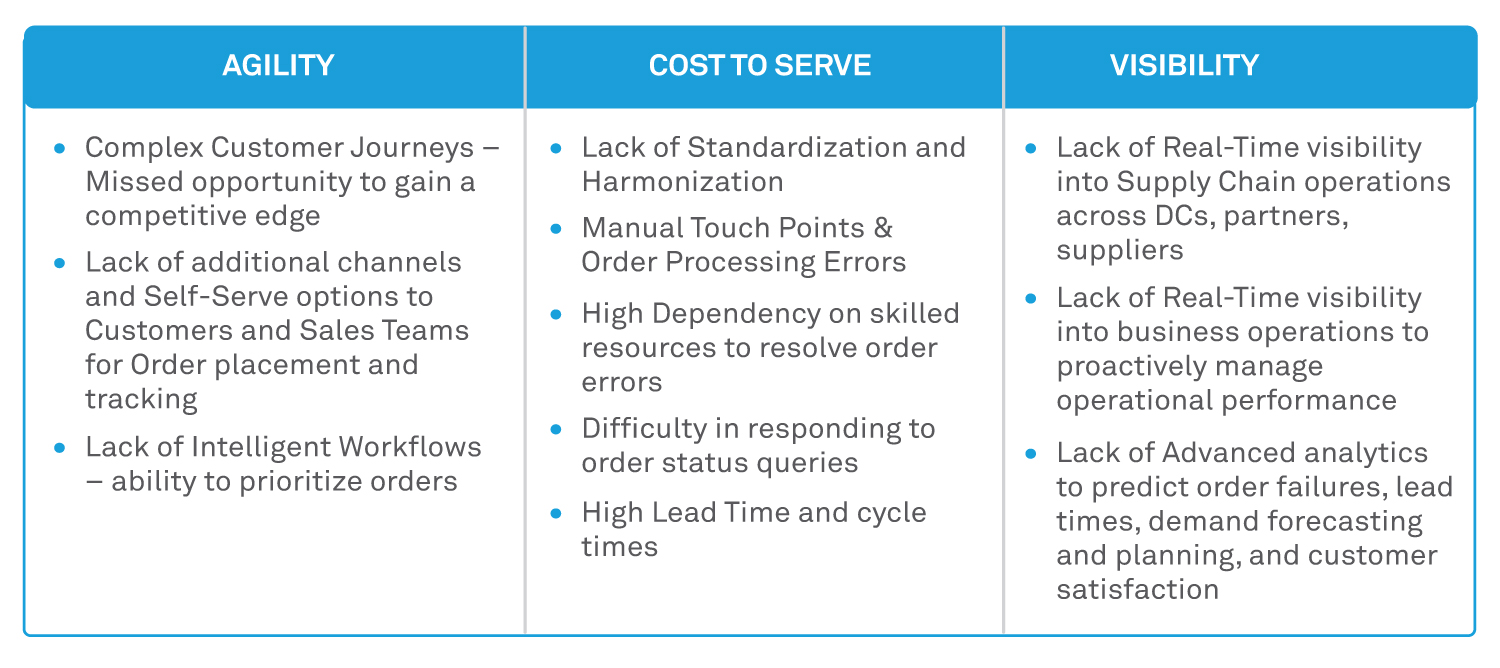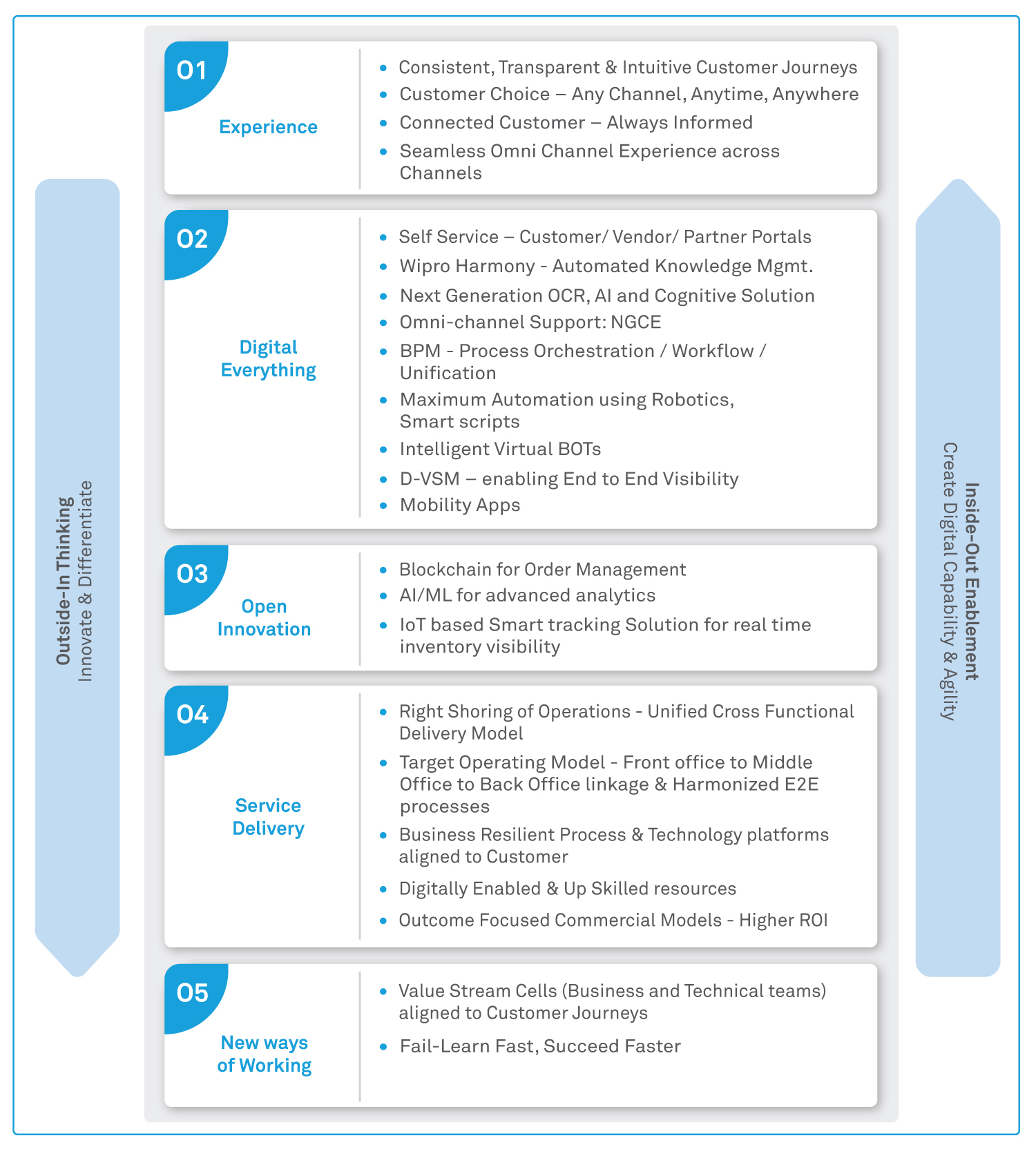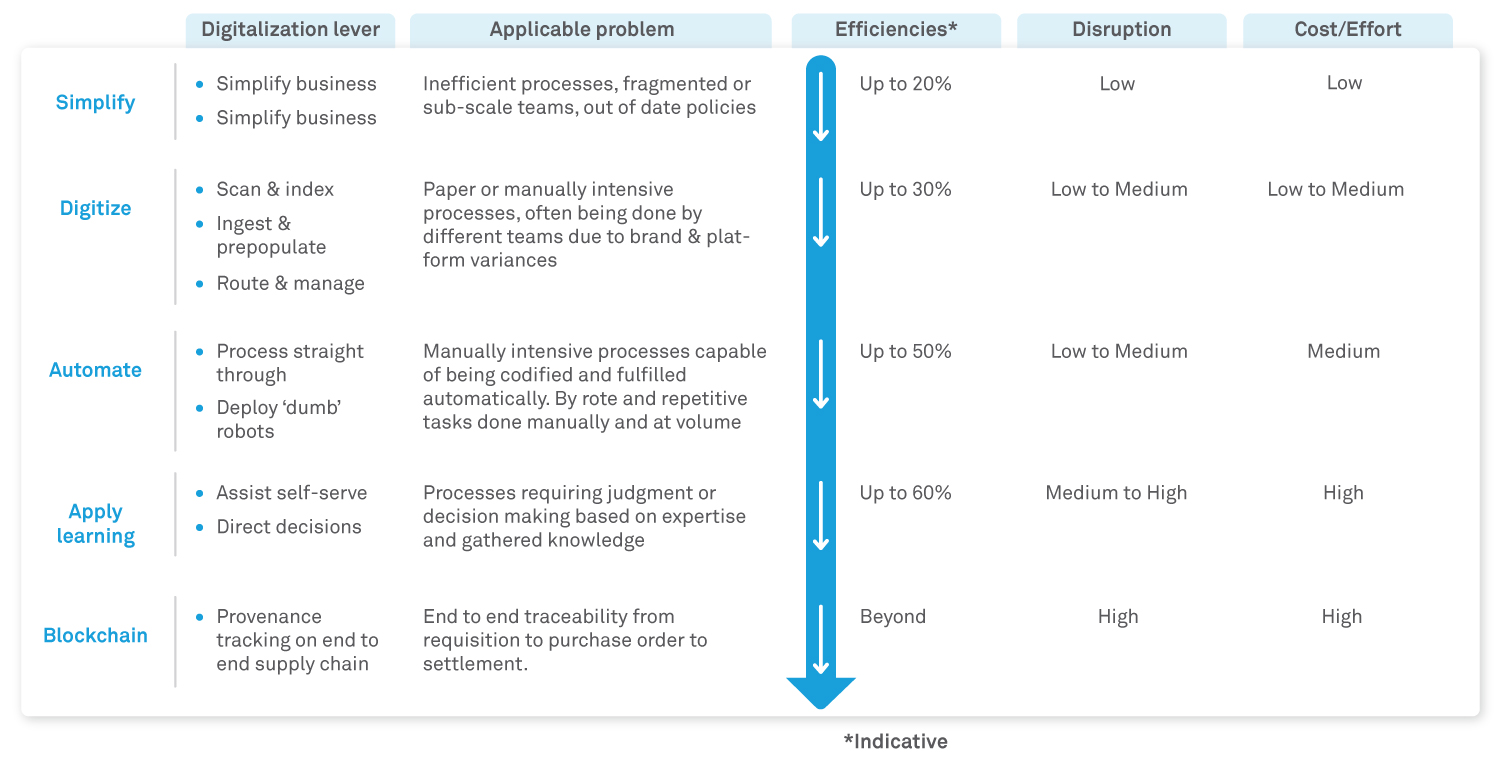Industry Overview / Introduction
The high-tech industry is going through large-scale disruption. Value is migrating from products and devices to software platforms; Intense competition, extreme cost pressures, inefficient and fragmented processes, siloed data, and legacy systems are forcing businesses across the world to make changes. Then, there’s the unrelenting pace of technology change.
Technologies such as artificial intelligence and machine learning are becoming pervasive, fundamentally changing the way companies operate. The advent of 5G, IoT, Blockchain, and NLP is adding to the potent mix of technologies driving profound change. Add to this, the ever-rising expectations of customers who want ‘anytime, anywhere’ service.
At the heart of this complex environment lies an organization’s Order Management Process.
Order Management Trends
Today, customers demand greater supply chain agility. The adoption of multiple channels is creating new capacity and cost challenges, and complex global supply chains are increasingly impacted by disruptions. This is driving the need for transformation in product and service supply chains along three axes, namely:
In this article, we explore how transforming the Order to Invoice processes can assist supply chain and customer service leaders in evaluating, selecting, and implementing digital order management solutions driving hyper-efficiencies, enhanced customer experience, and end-to-end visibility across Order Management operations.
Challenges
Intense competition, extreme cost pressures, highly inefficient and fragmented processes, siloed data, legacy systems, and demanding customers are forcing businesses to make many changes. Mergers and acquisitions are adding even more complexity to the business and IT landscape. In many cases, businesses are responding by investing huge sums of money, resources, and effort into improving the status quo, only to find that they are still falling far short of expected business benefits, customer growth and satisfaction goals.


With Digital Evolution, there is a need for companies to rapidly transform the supply chain and order management operations as an accelerated differentiator for growth to better serve existing customers, in addition to opening new emerging markets and industries. This presents us with a unique opportunity to leverage our practical expertise and experience in customer value chain planning and execution to:
Our approach / methodology / solution
Order Management is all about making the process – from order receipt to sales order creation to sourcing the components to delivering the finished goods & services to the customer – more efficient, reliable, and transparent. Breaking down silos and bringing innovation to all corners of the enterprise is necessary to survive in an environment with short product cycles and markets where companies quickly rise and fall.
At Wipro, we have designed a Digital Order Management cloud-based solution that can digitally transform your global business operations in sales order management and supply chain.
Our Design Principles bring together Outside-In thinking and the Inside-Out enablement capability, enabling digital transformation to achieve seamless customer experience, low-touch to zero-touch processing, reduced cycle times, ability to monitor operations in real time, thereby increasing accuracy and compliance in all transactions.

Making Digital Order Management Work for You
Today’s executives are all asking similar questions of their Sales Order Management. “How do I get to the next generation of Zero-Touch Sales Order Management Operations?” Executives want to know how to realize more value, how to expand services, how to enhance customer experience, how to drive zero waste, and how to drive continuous process improvement initiatives.
The core solution can be designed to not only deliver an innovative and cost-effective model but also provide a progressive and de-risked approach to operations through rationalization and automation leading to best-in-class delivery capabilities.
Simplify Business Processes - Organizations should focus on driving process simplification, harmonization, and rationalization of business processes with the help of Quality Framework, which is a combination of Lean, Six Sigma, and Kaizen. Elements like process control, process audits, and transaction monitoring will ensure that resources deliver a consistent experience to customers. To move to the next generation of sales order management, organizations must assess the maturity level of their current business processes and determine the best path to achieve standardization and harmonization.
Some of the key initiatives organizations should undertake include:
Leverage Technology Interventions - Technology has made our world an incredibly interconnected “system of systems” and enabled a new age of multi-modal boundless collaboration that opens up almost endless possibilities across the entire supply chain. Leverage in-house or partner’s investment in edge technologies like Intelligent BPM, Artificial Intelligence, RPA & Smart Scripts automating order management processes to reduce costs, achieve hyper-efficiencies and improve service levels.
Technology interventions that organizations should evaluate to eliminate manual activities and enable intelligent machine interactions:
Apply Analytics to gain Customer and Operational Insights – Along with gaining valuable customer and operational insights with the help of historical transactional data, organizations can also deliver actionable and fact-based insights that will aid in conducting intelligent analysis & will make it not only easier to visualize and interpret the data, but also to understand the reason behind patterns. The solution should include Data Visualization, Predictive and Prescriptive Analytics, Business Intelligence & Reporting.
Initiatives that organizations should take to reduce cost structure, improve efficiency, responsiveness, and predictable decision-making.
Innovate - It is no longer acceptable to be an exceptional implementer; instead, you must innovate to stand out in the crowd. How can you elevate customer service while reducing cost and increasing profit? Doing what you used to do better will not cut it! You must innovate.
Leverage Blockchain for Order Management and fulfilment process that provides end-to-end visibility and unparalleled data validation for order management with touchless invoice generation for participants in the SCM value chain. Select features should include:
In summary, working on these initiatives will see an impact on both the top and bottom lines

Looking forward, into the future
In today’s era of high customer expectations, businesses naturally aspire to the highest levels of service, from order confirmation to guaranteed delivery dates. At the same time, it’s imperative that they develop the ability to secure business continuity—to anticipate and mitigate possible supply chain disruptions, both local and global, that can range from political to environmental to economic, and can seriously disrupt operations without warning.
Yes, most companies have invested in sophisticated technologies and systems within the confines of their own organization; and many have gone further, expanding to include point-to-point connections with external partners. But if businesses are to successfully deliver both quality customer service and business continuity, they must take a new approach to Order management— specifically, the ability to orchestrate customers, partners, suppliers, and distributors to a level of accuracy unheard of just a few years ago. Achieving that requires a shift to a singular view of services among all entities that touch the order management value chain.
V. Karthik Viswanadham
Practice Manager, Supply Chain Management, Wipro
Karthik Viswanadham is a seasoned Order Management and Supply Chain professional with 17 years of cross-functional experience in partnering with clients across business domains such as digital transformation, automation, customer experience enhancement, business strategy, B2B/B2C consulting, and enablement of sales support operations. His industry focus includes verticals such as Hi-Tech, Manufacturing, Medical Devices & Telecom.